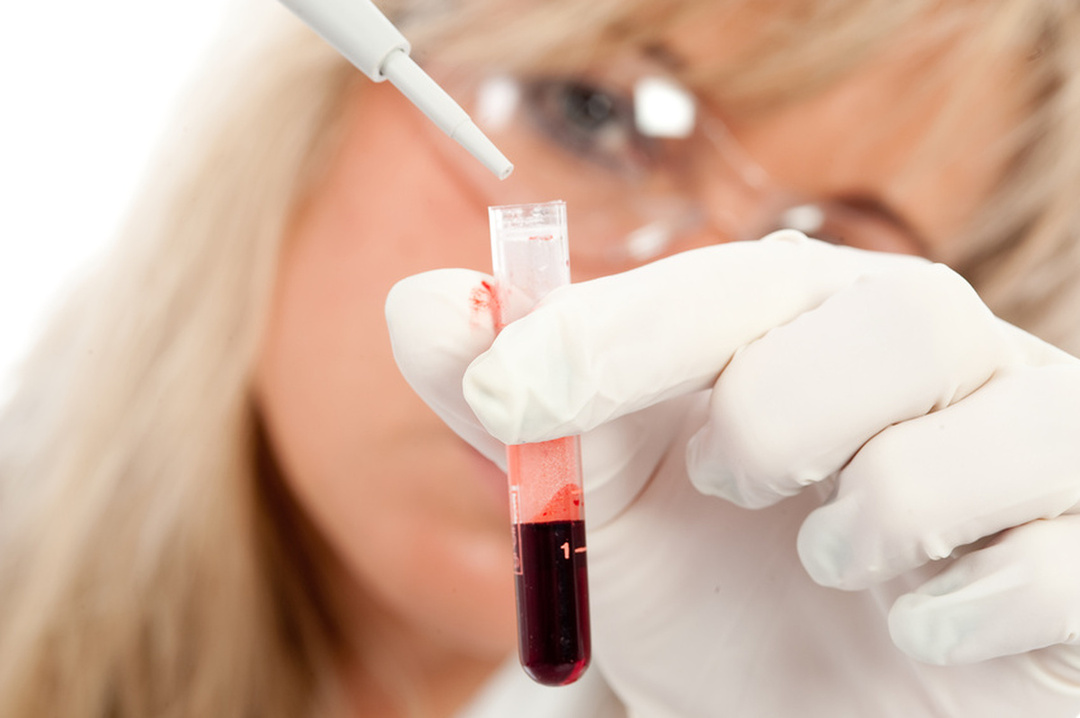Potassium in the blood is above normal (hyperkalemia): what does it mean, causes
Content
- general information
- Potassium and its biological role
- What is hyperkalemia: definition
- Why is a blood test for potassium prescribed?
- When is this analysis prescribed?
- Normal blood potassium values
- Causes of high potassium in the blood
- Possible accompanying symptoms
- How is the analysis carried out?
- Interpretation of results
- How to control normal blood potassium levels
- How to cook foods low in potassium
general information
Potassium - it is a mineral necessary for our body; in fact, it plays an important role in maintaining hydrosalt balance and is the basis of important neuromuscular and cardiac functions. Potassium absorbed in the intestine enters the bloodstream, and all of its excess is simply filtered and excreted by the kidneys. When these organs are unable to perform their functions properly, the level of potassium in the blood increases (a condition known as hyperkalemia). However, other factors can contribute to high blood potassium levels, including increased food intake and certain medications.
High levels of potassium in the blood lead to very serious health consequences, especially in relation to the heart, musculoskeletal system and nervous system.
Potassium and its biological role
Potassium is a mineral salt that is involved in various physiological processes in the body.
Along with calcium and sodium, potassium has several important functions, including:
- Supports the electrical membrane potential of cells, which is necessary for the conduction of nerve impulses and muscle contraction;
- Within cells, it regulates acid-base balance (i.e. pH) and osmotic pressure;
- Promotes the action of enzymes involved in cellular metabolism;
- Helps maintain a normal heart rate;
- Participate in maintaining normal blood pressure, mitigating the effects of sodium;
In the body, at rest, most of the potassium is found inside the cells (while sodium and calcium are predominantly extracellular).
Intracellular potassium concentration is maintained by an active transport system (called sodium-potassium pump), which transports sodium outside the membrane, causing re-entry potassium.
Potassium enters the body through food, but to maintain levels within normal limits, the body may resort to reserves of the element located inside the cells, depending on the needs of the organs and fabrics.
In any case, the body is not able to produce potassium on its own; for this reason, it is recommended to regulate the intake of foods rich in potassium. In this case, the kidneys will intervene if it is necessary to increase the excretion or reabsorption of the element.
What is hyperkalemia: definition
Hyperkalemia Is an increase in the concentration of serum potassium in the blood, equals or more than 5.5 mEq / l. This condition can be caused by excessive reserves of this element in the body (due to increased consumption of food or a decrease in its excretion by the kidneys) or an abnormal displacement of this substance outside cells.
Read also:Sideroblastic anemia
The causes of hyperkalemia can be exogenous (external) or endogenous (caused by pathological processes in the body). In any case, the change in potassium homeostasis is potentially fatal and requires immediate medical attention.
Why is a blood test for potassium prescribed?

A potassium test is necessary to check for a possible change in the body's potassium content, i.e. the level of an element present in the blood.
A potassium test is indicated if the doctor suspects an acid-base or hydrosalt imbalance, or if it is found the main clinical symptoms of excess potassium, represented by changes in cardiac conduction, arrhythmia, muscle weakness and tremor.
Blood potassium testing should be done periodically, even in dialysis patients. Although potassium is effectively filtered, it accumulates quickly in the body between treatments. Therefore, these people must be very careful not to introduce too much potassium into their diet.
The analysis of potassium is carried out at regular intervals even in the case of taking certain medications (for example, diuretics) or in the presence of pathologies (in particular, kidney disease and arterial hypertension), which can cause changes in potassium.
When is this analysis prescribed?
Potassium is often prescribed as part of a routine test to check your overall health.
The doctor may order this study even in cases where the patient suffers from hypertension or shows symptoms of hyperkalemia. In addition, an examination is prescribed in the presence of heart failure and renal failure.
Normal blood potassium values
- The concentration of potassium in the blood is optimal if it is between 3.5 and 5.0 mEq / L. The value depends on several factors, including: hormones, blood pH, diet and kidney function; it is also influenced by the circadian rhythm.
- Values above normal, 5.0 mEq / L, indicate hyperkalemia. In particular, the following is taken into account:
- Mild hyperkalemia: values from 5.0 to 5.9 mg-eq / l;
- Moderate hyperkalemia: 6.0-6.4 mEq / l;
- Severe hyperkalemia:> 6.5 mEq / l.
Potassium, which reaches values of 10 mEq / L in the blood, is incompatible with life.
During renal failureBecause of the reduced ability of the kidneys to properly remove potassium, hyperkalemia with blood potassium levels above 5.5 mEq / L is common.
- Values below 3.5 mEq / L indicate hypokalemia (decreased concentration of potassium ions in the blood).
Causes of high potassium in the blood
High levels of potassium in the blood can be seen with the following health problems:
- decreased kidney function (nephropathy, acute and chronic renal failure, renal tubular acidosis, etc.);
- increased consumption of foods high in potassium, fasting and relative deficiency insulin;
- obstruction (obstruction) of the urinary tract;
- decompensated diabetes;
- diabetic ketoacidosis;
- Addison's disease;
- hypoaldosteronism;
- systemic lupus erythematosus;
- sickle cell anemia;
- poisoning with digoxin (digitalis);
- infections;
- dehydration;
- intense physical activity;
- erythrocyte disorders, thrombocytosis and leukocytosis.
Read also:Hemophilia
Above normal blood potassium may be the result of increased tissue catabolism, as occurs in the case of:
- bleeding of soft tissue or gastrointestinal tract;
- acute intravascular hemolysis;
- massive cell death and tissue necrosis;
- tumor lysis syndrome.
Excess potassium is often found in the presence of:
- cellular mechanical damage;
- muscle breakdown (rhabdomyolysis);
- severe burns;
- adrenal insufficiency;
- severe injuries.
An increase in potassium can also occur due to iatrogenic causes such as massive blood transfusions, chemotherapy and taking supplements or drugs containing potassium salts (such as penicillin G or phosphate potassium).
Other medications that often cause high blood potassium levels include:
- diuretics (such as triamterene and spironolactone);
- non-steroidal anti-inflammatory drugs (for example, ibuprofen and diclofenac);
- angiotensin receptor blockers (eg, losartan);
- cyclosporine and tacrolimus (medicines used to prevent graft rejection);
- β-blockers (such as atenolol);
- ACE inhibitors (ramipril, captopril, etc.)
- sartans (which counteract the effects of aldosterone in excreting potassium).
Possible accompanying symptoms

The clinical manifestations of hyperkalemia are usually neuromuscular and include:
- asthenia (fatigue), progressing to flaccid paralysis;
- labored breathing;
- paresthesia;
- weakness and muscle cramps;
- feeling of heaviness in the legs;
- abdominal pain with nausea, vomiting and diarrhea.
The most serious damage occurs at the level of the heart, which is subjected to "strong current discharges" ". This phenomenon can develop into abnormal heart rhythms and cause arrhythmia, slow heartbeat and / or ventricular fibrillation up to asystole and cardiac arrest.
How is the analysis carried out?

A potassium test is a laboratory test that is done after a simple blood test.
There are no special rules for preparation before passing the analysis. It is recommended not to eat before taking tests, although this is not necessary. However, you must tell your doctor what medications you are taking, as many medications can affect the test result.
Also, the method used for collection and research can affect potassium levels. Among the factors that can cause high potassium values if the analysis is performed incorrectly, you can highlight:
- too tight a tourniquet;
- patients forcefully open and clench their fist while collecting blood;
- samples are analyzed late;
- collecting blood in the tube too quickly.
In this case, the physician should very carefully consider whether and how to retest the potassium.
Interpretation of results
An increase in potassium can occur in a variety of conditions, including: kidney disease, decompensated diabetes mellitus, hypoaldosteronism, and dehydration.
Medications such as ACE inhibitors, diuretics and sartans should also be highlighted among the most common causes of high potassium levels in the blood. Hyperkalemia puts you at risk for serious heart rhythm or conduction problems.
Read also:Blood cancer
| High potassium in the blood: possible causes | |
| Increased consumption |
|
| Decreased excretion of potassium by urine |
|
| Potassium release by cells |
|
In any case, the test results should be assessed as a whole by a general practitioner who knows the patient's medical history. Therapeutic treatment for hyperkalemia depends on its severity and mechanism.
Treatment may include:
- reducing potassium intake;
- suspension of therapy that causes hyperkalemia;
- the use of drugs to increase the excretion of potassium.
How to control normal blood potassium levels
- In case of hyperkalemia, the doctor may prescribe ion exchange resinsthat act in the intestines to bind potassium in food. This promotes the elimination of the element from the faeces and reduces its absorption into the blood.
- Practice regular physical activity may help eliminate potassium with perspiration. There is no need to do grueling workouts, just take a walk or ride a bike.
- Proper nutrition helps to limit the amount of potassium consumed. In fact, potassium is found in most foods and beverages, including fruits and vegetables. In the case of high blood potassium, ketchup, sauces, chocolate, biscuits, fruits, potatoes, wine, beer and coffee may be restricted; one serving of fresh fruit per day can be consumed, while the second serving should be consumed cooked.
In the case of hyperkalemia, it is recommended to drastically reduce the intake of fruits that are very rich in potassium (such as bananas) and dried nuts (such as walnuts, almonds, raisins, and pine nuts).
How to cook foods low in potassium
Prepare food with some caution, as this can affect excess potassium in the diet.
Before eating, it is advisable to cut potatoes and raw vegetables (dill, onions, carrots, etc.) into small pieces and immerse them in a large amount of warm water for about two hours, then change the water and repeat the procedure at least one more once. Thus, a large amount of potassium is removed (like salt, this element also dissolves in water). Then drain the liquid and cook, removing the rind if possible.



